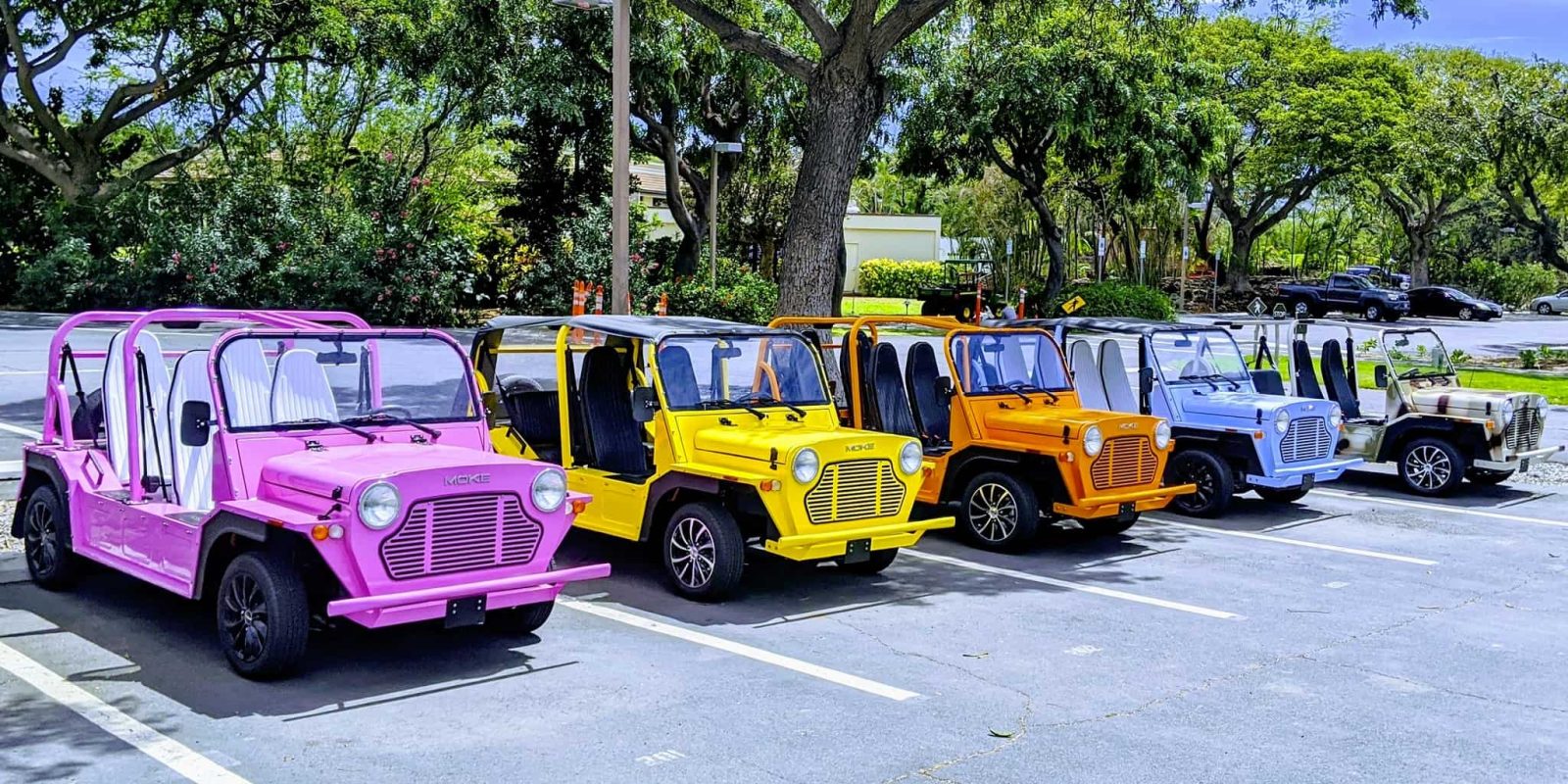
In Part 1 and Part 2 of this series on LSVs and electric micro-cars, we discussed the definitions, use cases, and street-legal rules regarding this important class of tiny vehicles. Now in Part 3, the final installment of the series, we’ll look at which street-legal vehicles are actually available in the US.
As we discussed in Part 2, there are clearly defined federal regulations that low-speed vehicles (LSVs) must meet to be considered street-legal in the vast majority of the US. While there are a few states with more lenient LSV laws (I’m looking at you, Arizona and Colorado), almost everywhere in the US requires LSVs to meet dozens of regulations relating to their manufacturing and safety equipment.
These are the vehicles that do, or will shortly. And we’ll regularly update this list as new street-legal LSVs join the market.
Also, it is important to note that there are a growing number of unscrupulous micro-car dealers in the US that claim street-legal status for their LSVs purely based on claims that the vehicles “only reach 25 mph of speed” or “come with seat belts,” though as we learned in Part 2 of this series, that isn’t nearly enough to make the vehicles street-legal.
So always remember to check a bit deeper before simply believing any ol’ micro-car is a street-legal LSV.

Eli Zero
The Eli ZERO is an all-electric two-seater that is already available in Europe as a quadricycle, but is expected to enter the US market soon as a street-legal LSV.
As of mid-2023, Eli is preparing for an exclusive pilot of the Eli ZERO in the US. The company will launch a pre-order program and plans to deliver a limited number of vehicles in the US by the end of the year.
The Eli ZERO was designed from the ground up as a LSV to comply with both Federal Motor Vehicle Safety Standards for LSVs and CARB requirements for California.
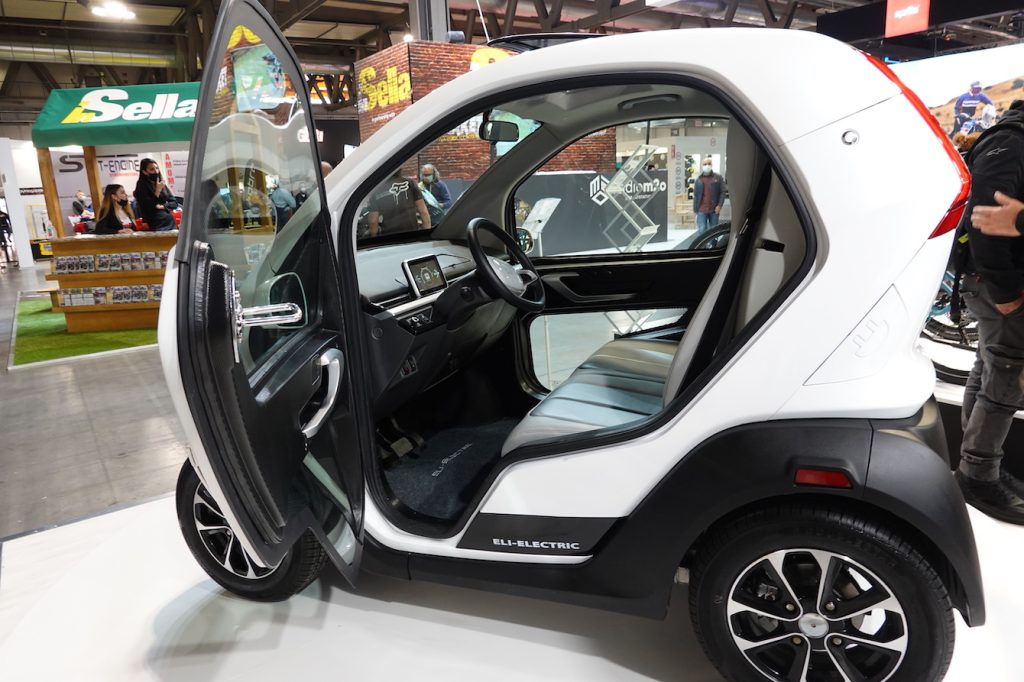
Initially designed for the US market, the Eli ZERO was later developed into a European version of the vehicle, which has already been made available in select regions across Europe. Building on the international experience gained, the company is now planning to introduce a special edition of the Eli ZERO for the US market.
As Eli’s founder and CEO Marcus Li explained to Electrek:
In the US, roughly 60% of journeys are under six miles, and cars in urban areas move slower than you would think. The average speed of a car in Midtown Manhattan is only 4.7 mph. As people seek affordable, practical, and eco-friendly ways to get around, the demand for advanced micro-EVs like the Eli ZERO is set to soar. According to McKinsey, the addressable market can reach $100 billion by 2030, and Eli is well-positioned to seize the opportunities presented by this transformative era.
Pricing hasn’t been announced for the US, but the Eli Zero costs around €14,000 in Europe, or approximately US $15,000.
Wink Motors
Wink currently has four different models of LSVs that have all been homologated for street-legal use in the US. Two of its models, the Sprout and the Sprout Solar, are designed for budget-minded drivers, coming in at just under US $10,000. The more premium models, known as the Mark 1 and Mark 2 Solar, are still fairly low-priced at around US $12,000.
All of the models are four-seaters and have similar performance specs, feature safer fireproof lithium iron phosphate (LiFePO4) batteries as standard, and include air conditioning.
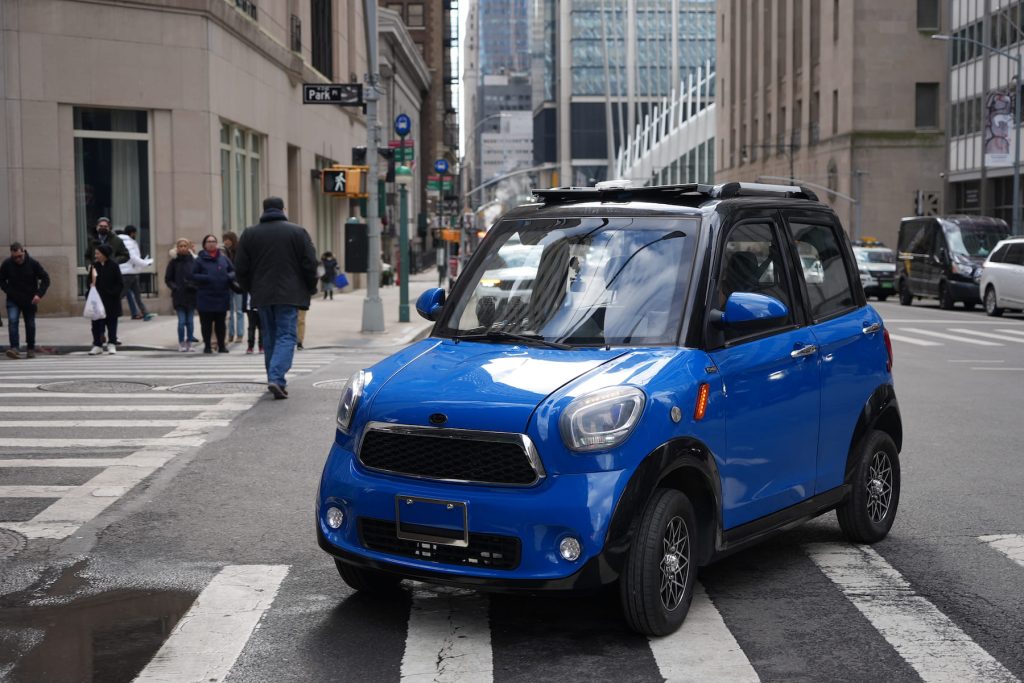
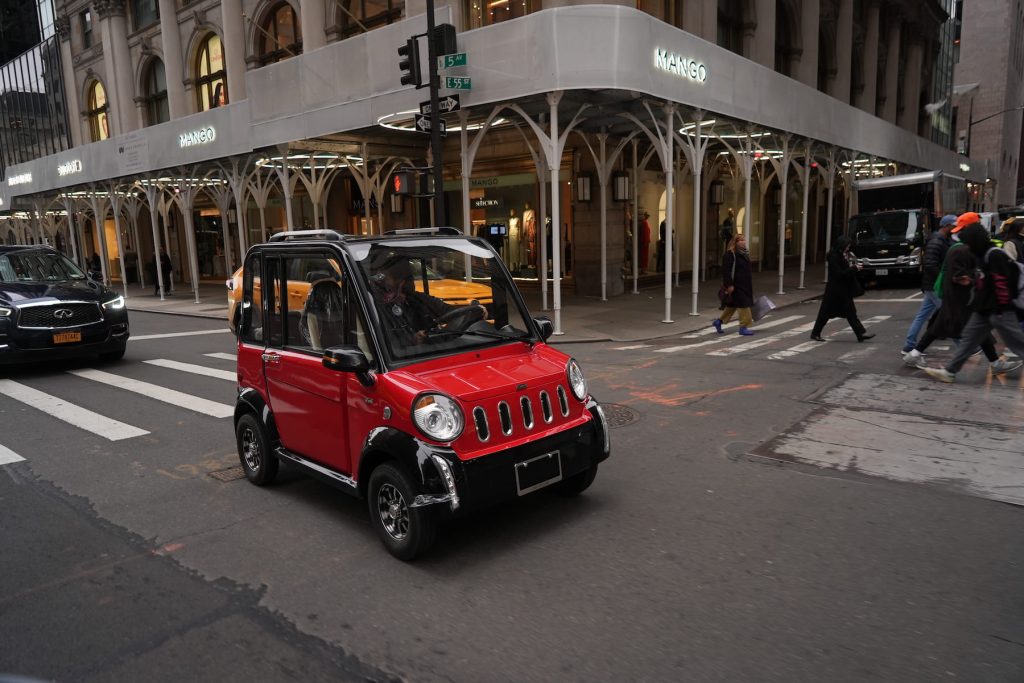
The solar versions of each body style include a large solar panel on the roof to partially recharge the battery from the sun. The panels are sufficiently large to add around 5 miles of range per day, or even more in extra sunny areas. For those that only use the vehicle in the city or around the neighborhood, that might be enough to never charge the vehicles into the wall for home-charging.
Compared to most other buggy-style street-legal LSVs in the US, Wink’s models are slightly more car-like in their appearances, especially the Mark 1 and Mark 2 solar. The prices also compare favorably to higher cost LSVs, putting the Wink vehicles closer in line with LSV golf cart pricing.
WAEV GEM
The GEM is one of the original low-speed tiny cars to popularize the concept of a neighborhood electric vehicle (NEV). The company changed ownership a few times, most recently being spun out from the larger Polaris umbrella and now settling with WAEV.
GEMs are largely open-air vehicles, similar to a golf cart, though they have accessory options for adding doors for a more enclosed experience.
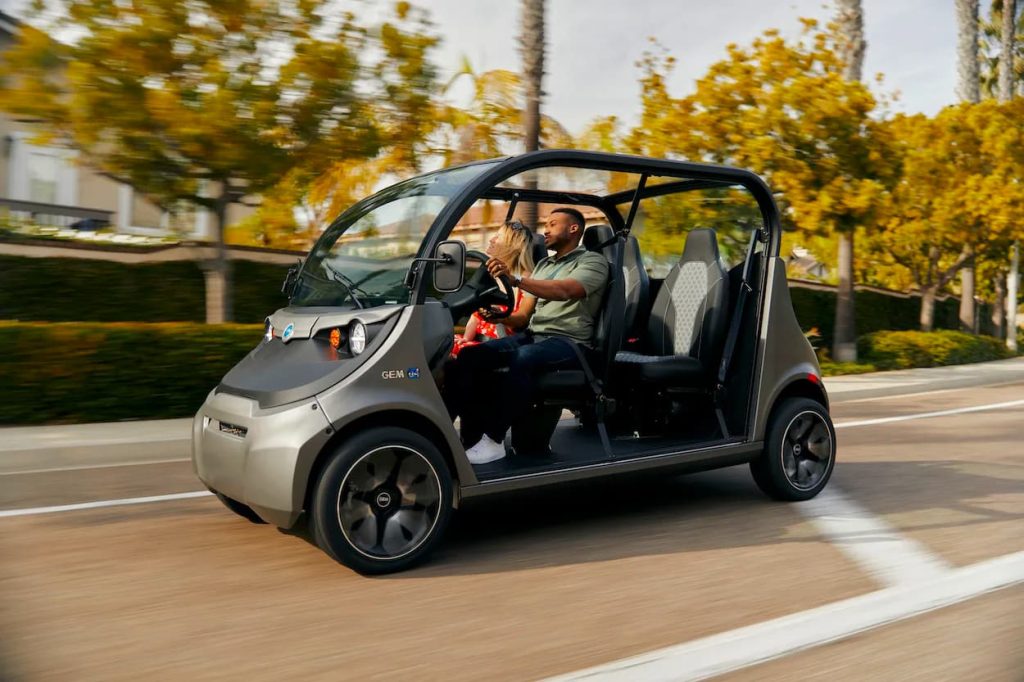
They’re popular at commercial venues, campuses, airports, and other locations that require people movers that aren’t necessarily cars, or that require indoor vehicle use.
GEMs are some of the more refined LSVs on the road, boasting many years of development and innovations. However, high prices make them more expensive than a simple golf cart or other newer LSVs to market. Despite seemingly lower prices starting at around US $14,000, the base model vehicles come with decades-old lead acid battery technology. Upgrading to a proper, modern lithium-ion battery is an over US $9,000 upgrade by itself. So while these vehicles look great and function well, they’re pricey enough that they’ve largely been left to commercial use.
AYRO
There aren’t many street-legal electric mini-trucks in the US, but AYRO is trying to change that. This Texas-based electric vehicle startup is nearing production of its AYRO Vanish mini-truck.
The Vanish comes in a standard flatbed design, but add-ons can turn it into a pickup truck of sorts with three fold-down side gates. There are also modular cargo box options that can create a box truck configuration.
The Vanish is being produced in Texas at AYRO’s Round Rock facility, making it one of the first electric mini-trucks produced in the US.
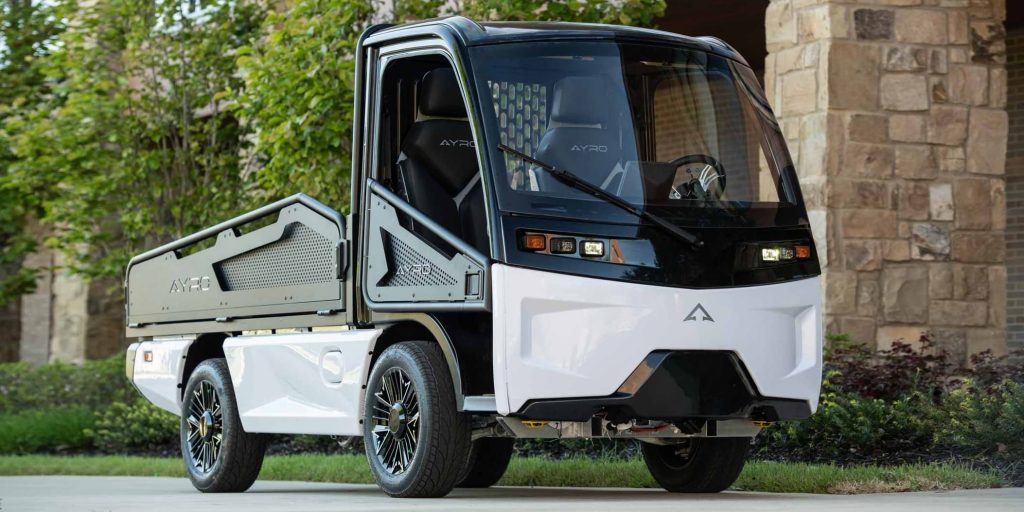
The LSV version is homologated for use on public roads, but AYRO will also have a non-homologated version for private property and campus use. That model will have a higher load capacity and can take advantage of performance specs that fall outside of the regulatory framework of LSVs in the US.
At a starting price of around US $33,000, the Vanish is pricey compared to most LSVs. Considering its target market is commercial applications and that the vehicle is able to haul much more than most LSVs, that price might be worth it for the right type of commercial customer in need of an electric mini-truck
Pickman
Pickman is a Chinese manufacturer or electric mini-trucks. They’ve been around the block a few times, including for several years before we began covering the company back in 2019.
The company has produced several versions of its electric mini-trucks for the US market that have been designed to meet federal standards for LSVs.

Mini-trucks are popular forms of utility vehicles in many areas of the world, but they have yet to catch on in large numbers in the US. This is largely due to safety standards and regulations for motor vehicles in the US, which make it hard for low-volume production vehicles to enter the US. But with the creation of the LSV category, more electric mini-trucks are starting to make their way stateside. Most imported Chinese electric mini-trucks are not street-legal in the US since they don’t comply with US LSV regulations, but the Pickman has been homologated for sale in the US.
Prices for Pickman trucks in the US start just north of US $20,000, though special versions such as four-seaters and others come with higher price tags.
Club Car
Club Car is one of the largest golf cart manufacturers in the US and has several LSV versions of its vehicles. While most of the standard golf carts in its lineup are not homologated as LSVs and thus don’t meet federal regulations for on-road use, the company’s LSV models were designed to meet these federal requirements.
The company has both four-seater and six-seater models that qualify as LSVs, as well as utility versions and even an electric mini-truck vehicle designed to meet LSV standards. Prices start at around $13,500 for the most affordable options, but those use older-technology lead acid batteries.
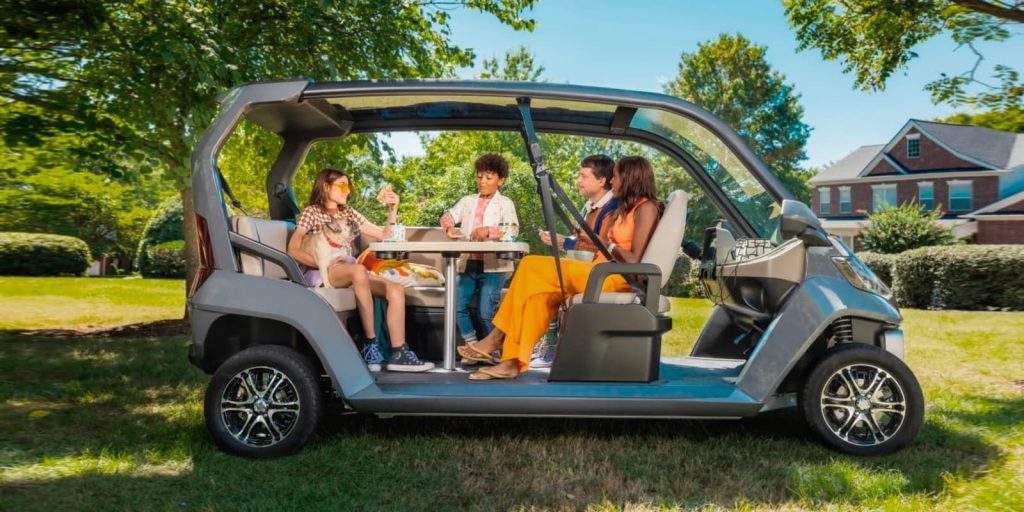
The company is also working on an interesting concept known as the CRU (seen above), which is a more luxurious open-air vehicle that combines the mobility of a golf cart with the luxury of a living room sofa.
E-Z-GO
E-Z-GO is another large manufacturer of golf carts that has also expanded into LSV versions of its popular models.
Like Club Car’s LSV models, E-Z-GO’s Liberty LSV is largely a golf cart that has been homologated for street use by meeting the federal safety regulations for low-speed vehicles.
This means that it is an open air vehicle like a golf cart, features bench seats, flat plastic windshield, and easy entry through the doorless sides of the vehicle.
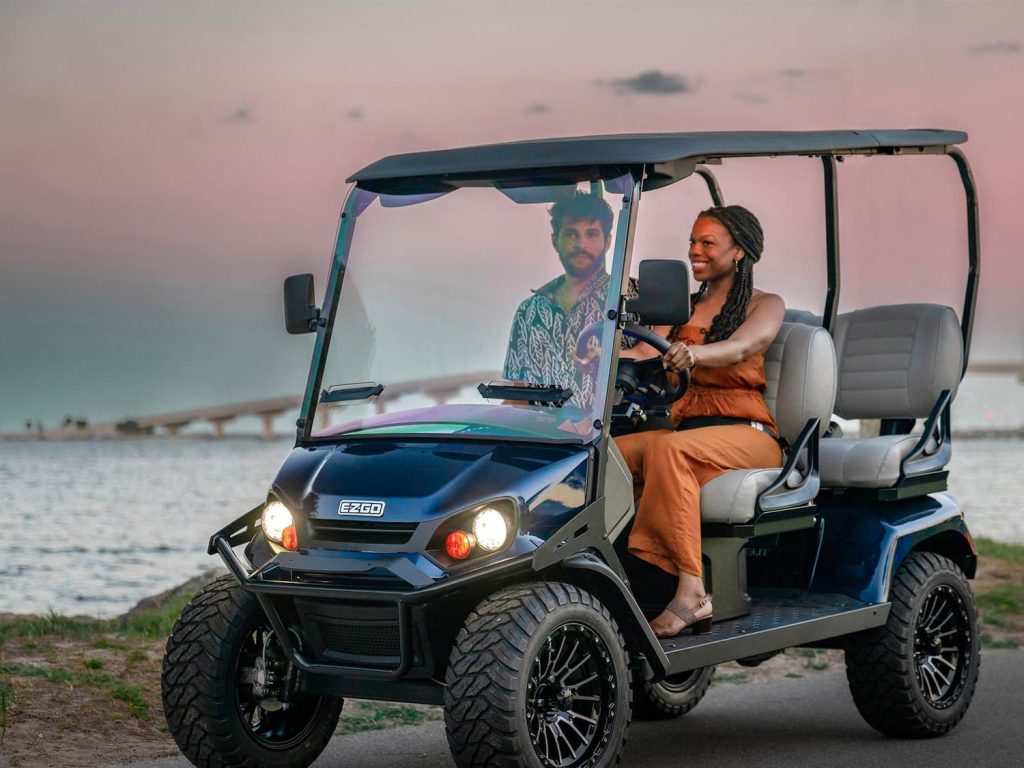
It also includes some more creature-comfort features such as an infotainment system with music streaming via Apple CarPlay and Android Auto.
Anyone who is used to driving a golf cart will immediately find this style of LSV familiar, since it looks and functions much like a traditional golf cart. But due to the modifications required for street-legal homologation as well as the lithium-ion battery package the price is quite a bit steeper than a simple golf cart. The Liberty LSV starts at around US $20,000 and climbs from there depending on accessories.
MOKE America
MOKE America offers its open-air Mokes in the US, based on the original British design popularized in European beach towns throughout the ’60s and ’70s.
Unlike the original Mokes, these are all-electric and thus don’t require the same level of maintenance as those old combustion engines. But they still retain much of the same classic charm, from the low step-over entry to the windy cockpit and seating for four.
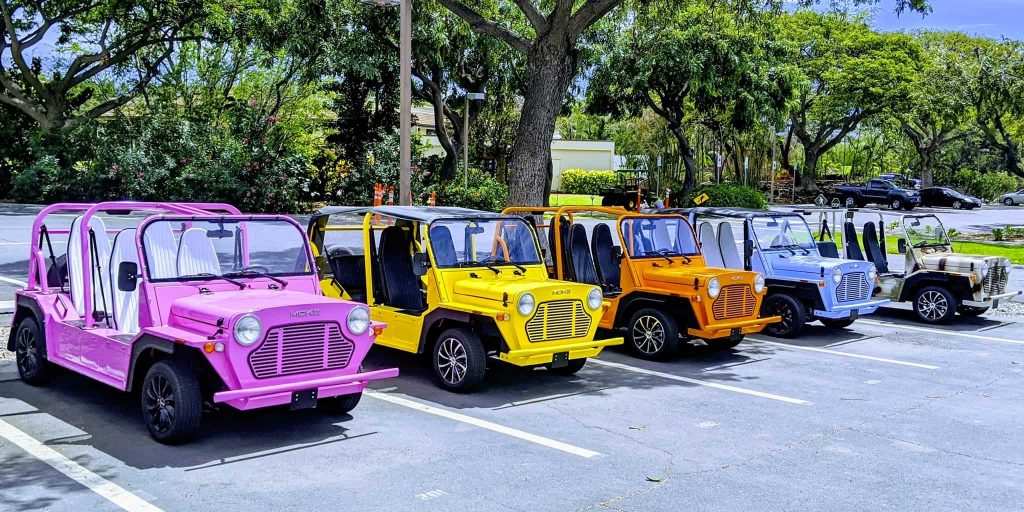
The specialty design certainly adds to the price though, with a Moke starting at around US $23,000 before any add-ons like a soft-top or rain doors.
Top comment by OliveDucky
Even at the average midtown Manhattan speed of 4.7 mph, I wouldn’t want to be in these doorless wonders in NYC in February. Or anytime. Heat, noise, cold, rain. Useless on the FDR Drive or HH Pkwy.
Nope. Give me a 50-mph EV with doors, at the same price. They’re not as “cute.” But they exist, and are vastly more useful.
When it comes to the fun-loving wind in your face driving with classic vibes, it’s hard to beat the look of an old-school Moke!
More LSVs are sure to come!
These are the currently available street-legal LSVs in the US, as of the time of publishing. We’ll do our best to update though as more interesting models come to market.
There are other NEVs and micro-cars in the US, though like we talked about in Part 2 of this series, many are not actually street legal. In fact, many of the options sold online that make claims of “street legal!!!” are far from actually being approved for use on US roads.
As the LSV category grows and more Americans find their way toward smaller, nimbler, and more convenient electric micro-cars, the number of street-legal options is sure to expand.
FTC: We use income earning auto affiliate links. More.




Comments